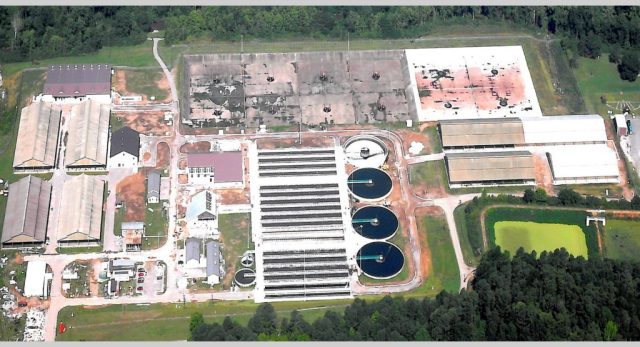By Barnett Wright
The Birmingham Times
After nearly three decades of federal oversight, the Jefferson County Commission on Tuesday filed a motion to be freed from a consent decree over its sewer systems.
The county, under the consent decree since 1996, filed for release on the basis that it has demonstrated constant compliance for all four of the water reclamation systems remaining under the decree.
There were nine facilities at the beginning of the decree and five have already been released. The remaining facilities are Cahaba River, Village Creek, Valley Creek, and Five-Mile Creek.
“We set a list when we [were elected in] 2010 to accomplish everything that we needed to move Jefferson County forward,” said Commission President Jimmie Stephens. “This may be the last on the list” of consent decrees that included a release in 2020 after nearly four decades under federal supervision for discriminatory hiring practices.
Stephens, who along with Commissioner Joe Knight are the only two remaining when a new panel was seated in 2010, pointed out that the motion for release came from the efforts of two separate commissions and elected officials from both parties.
“It shows what we can accomplish when we work together,” he said. “We may be elected as a Republican or a Democrat, but when we become a commissioner, we represent all the citizens of Jefferson County.”
The county entered into a consent decree 27 years ago to settle a federal lawsuit over river and stream pollution. A lawsuit filed in 1993 became the genesis of Jefferson County borrowing billions to get its leaky sewer system fixed. The suit claimed the county’s sewage discharges violated the federal Clean Water Act and polluted the Cahaba and Black Warrior rivers.
The borrowing for construction projects from that decree ultimately cost the county $3.2 billion and led to historic bankruptcy and the backdrop for a series of public corruption convictions.
Stephens said Tuesday the motion shows the county has attained a “clean slate.”
In the filing, county officials say their environmental services department has achieved “outstanding performance” in reducing sanitary sewer overflows and has established operating and capital programs that are effective for not just for the four systems remaining under the consent decree but the entire water reclamation system.
The county currently manages over 3,100 miles of sewer lines that treat over 100-million gallons of wastewater per day and serve approximately 600,000 citizens in Jefferson County and parts of Shelby and St. Clair County through its nine water reclamation facilities.





